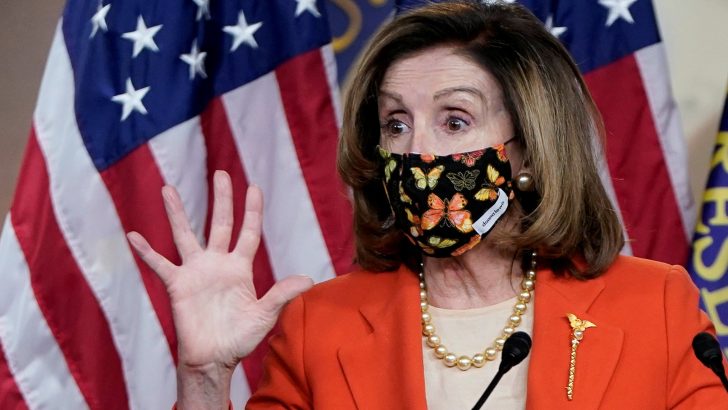The View
The past year has been so very strange for all of us – our ways of being and doing were suddenly and utterly changed. We ceased to be in charge of our own lives. Once we were able to gather as a community of God, pray together and celebrate the great joys of our faith together. We were able to travel – for business, for holidays, to visit our family and friends, to celebrate birthdays, weddings, baptisms, even just the joy of being alive. We were able to sit and eat together, to go for a drink, to have a coffee with friends, to shop, to visit interesting places, go to football matches…I could go on and on. Yet it was all taken away from us because of the Covid-19 pandemic.
Disease
It was taken away so that the disease would not spread. Each human physical contact brought with it the possibility of the transmission of the disease. Therefore, it was decided, human contact must be limited. That did not solve the problem – there were still too many physical contacts between us, and so governments across the world moved to strip away the freedoms which we have all taken for granted for so long. We acquiesced because we knew it was necessary for the common good – to prevent the spread of what, for the majority is but a passing inconvenience, but which has the capacity to destroy vital organs and to kill. Almost 2.5 million people across the world are recorded to have died from Covid-19.
We have faced a very stark reality: that disease prevention actually lay in our own hands here today in Ireland – that we had the power and the duty to deny ourselves for the good of others whom we might never know.
The cost has been enormous, It has undoubtedly brought very real suffering, loneliness, isolation, separation from much of what we know and love. It has been demanding. It has been hard. I think that for our priests it must have been particularly hard – their lives are lived in the service of God and his people, celebrating the sacraments which we have missed so much, being with people in their joys and in their sorrows, yet that has not been possible to the same extent or in the same way.
In some ways it has been reflective of Lent – of that time when we try to strip away the things which we allow to keep us from God and to bring ourselves closer to God, to remind ourselves of what we believe and to try and live that faith in all its fullness.
Above all it needs real leadership, laying aside partisan politics for the common good, as they have been laid aside (largely!) to fight Covid-19”
Over this year many things have happened – our new abortion laws have resulted in 1,000 lost lives here in Northern Ireland. Britain has left the EU, yet the North is in some strange limbo where we are in the European single market, yet no longer part of the British internal market. We have yet to work out how to make this work for us, but we must, and it can. Above all it needs real leadership, laying aside partisan politics for the common good, as they have been laid aside (largely!) to fight Covid-19. The American elections have brought a new president. America is very divided – her politicians have yet to find the language that will bring about some healing in a country, and indeed a world, in which the freedom to speak in opposition to the received wisdom seems to be diminishing.
So perhaps we need to go into Lent as a kind of time of discernment, in which we can try and work out what true faith demands of us as citizens of this world, and above all as Catholics.
One of the questions I ask myself as a legislator and member of the House of Lords is how must I live my faith, trying to ensure that laws are passed which will provide the greatest common good, and what are the lines in the sand which I cannot cross? I think there is really just one line and it relates to the sacredness of life from birth to death. That derives from my understanding that our lives are not ours to live as we will, but rather they are a sacred gift from God. Our experience tells us that each of our lives is connected to others, and we grieve the passing of those whom we know and love. Their leaving renders us lost.
Human life
Politicians often say, when thinking about things like abortion and euthanasia that they are personally opposed to laws which permit the taking of human life, but they do not think they should impose their views on others.
I have come to believe that for Catholics, this is not a permissible distinction to make. If we legislate for abortion, or euthanasia, then by our actions we enable death. We impose our views on all those little children who will be killed in the womb. They have no choice, no freedom. This we should never do.
I do not believe that a Catholic can ever legislate to take the life of an unborn child, other than when the mother’s life is at risk and so mother and baby may die. We are not called to judge each other. We leave that to God. Yet those who occupy positions of power influence how people think, and when people like Joe Biden and Nancy Pelosi proclaim, as Catholics, that abortion is a healthcare to which people have a right, they make it seem that enlightened Catholics can speak like this in truth. Yet that is not the case. Of course, we must provide healthcare, but we must never destroy life. I believe that, each one of us, no matter how big or how small our sphere of influence, must cherish the great gift of life which comes from God alone, in all our thoughts, words, and deeds.
Gift of life
Cherishing that gift of life has many forms: there is so much that we need to do to make this world a fairer, better place. We need to harness the powers of creativity and entrepreneurship and enable real development without allowing unaccountable big business to take over the world. We are amateurs at the business of running our national and global affairs. Global tech giants like Amazon, Google, Facebook and Apple gather far more information about us than our governments do. In so doing they are able to influence what we do, think and even believe. Yet we need these great communication facilities. We have much to think about.
Above all during this Lent perhaps we need to recognise again that there is a constant battle between good and evil in this world, and hear again the words of Teresa of Avila: “Christ has no body now but yours. No hands, no feet on earth but yours. Yours are the eyes through which he looks compassion on this world. Yours are the feet with which he walks to do good. Yours are the hands through which he blesses all the world. Yours are the hands, yours are the feet, yours are the eyes, you are his body. Christ has no body now on earth but yours.”


 Nuala O’Loan
Nuala O’Loan US House of Representatives speaker Nancy Pelosi. Photo: CNS
US House of Representatives speaker Nancy Pelosi. Photo: CNS 